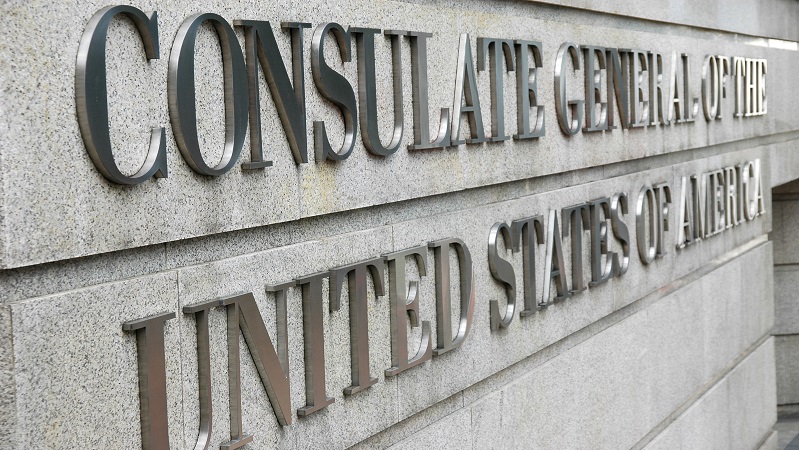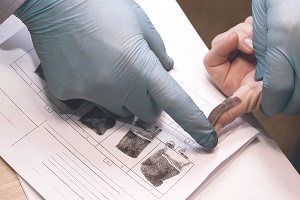Tips For Preparing Your Family Petition Appointment
”El Show Sin Fronteras”
Spanish Video Above Translated In English Below
What Is The Consular Process?
The last facet of family petitions or Petition for Alien Relative is to go through the Consular process, but What is it about? Why do people have to do this?
100% of the beneficiaries who are outside the United States will have their application processed through the Consulate, but there is also a percentage of beneficiaries arranging for a family member who is already living in the United States, and there is also a percentage of beneficiaries who are living in the United States. they will have to go out and process at the U.S. Consulate in their own country. and not in the country.
This is called consular processing.
There are people outside the United States who are going to have to go to the Consulate, but there is a lot of confusion about which immigrants who are already inside the United States can arrange without leaving or who have to leave and go to the Consulate outside in their home country.
When we are talking about a family petition and someone is a spouse of a U.S. citizen, child of a U.S. citizen under 21 years of age, or the parent of a citizen and is arranging, and that person entered on a Visa although perhaps overstayed their permit, that person would probably qualify to adjust status within the United States without having to leave or without needing a waiver.
If they did not enter on a Visa, are not a family member of someone serving in the Armed Forces, have not suffered Domestic Violence (VAWA), and have not been petitioned before 2001, most family members who are arranging for a family petition will have to go through the Consulate after the I-130 Form family petition step, and for those inside the United States, there is a process to request a consular pardon for their presence in the country without permission.
Let’s say for example if my husband entered without a Visa from Mexico 10 years ago, now we are married and I want to apply for it but he entered without a Visa, first I start with the I-130 form.
When that form is approved we follow with forgiveness, and that is Form I-601A and in that waiver, we are proving to immigration that I, the petitioner, am going to suffer extreme harm if my husband cannot stay in the United States.
After that pardon process is approved, we schedule the appointment at the Mexican Consulate in Ciudad Juarez and he will have to appear at that appointment there in Juarez in order to return with permanent residency.
Benefits Of Hiring An Attorney For Consular Processing
What updates that have come out in the January 2022 Visa bulletin may benefit in this regard? What is the most advisable for this process?
It is necessary to have an attorney for these consular proceedings, and more than other immigration cases, you may need a deportation defense in court.

For the consular process, it is very important to have a lawyer because it is very easy to make a mistake in this type of case, not receiving the necessary pardon, missing a document or some information on a form, and the least that can happen is a long delay in this type of case.
When the case is already with the National Visa Center and we are preparing a client’s case, but there is an error or a lack of documents at the Consulate, it can take more than 6 months in total.
A very small mistake can change the future of a person completely, but the worst thing is when we saw for example when a person did not know that they needed a pardon or they pardoned one thing but not the other, then we arrived at the appointment at the Consulate and they were given a negative decision on their case.
In these cases, the Consulate gives you a blue sheet stating that you do not qualify for approval of your case for whatever reason, but what happens after that is that you will have to apply for a waiver if you are eligible for such a waiver and wait up to 1 year or more outside the United States perhaps separated from your family.
That is why we are very careful with all of our cases, but especially with Consular processing cases, because when we are sending a client out of the United States separated from their family, we have to make sure that everything is done right, that there are no documents missing.
Unfortunately, we get a lot of inquiries from people who think that the I-130 is not going to be difficult because they are married, they have shared children and they are going to put in the birth certificate of those children, and that evidence that it is a bona fide marriage is necessary to be approved without difficulty, and maybe they can ask for a waiver without an attorney.
People sometimes think that the whole process is easy, and when we have these consultations with our clients, for us it’s something horrible because we are talking about a separated family that did not know it was advisable to have a legal representative, and now we have to fix the situation and wait about 1 year.
Should I Trust The Information Immigration Gives Me?
It is very simple to make a mistake at this point because this is how the family petition is approved and you begin to receive communication from the National Visa Center, which is where the interview takes place, but in that communication, they mention you: you know you’re going to need a waiver, you have to take this additional step.
It’s very easy to just go along with what immigration is telling you and move forward without that waiver, because they’re not giving you any notice that you’re going to need one, and that’s where the expertise of our attorney Kate and the entire team we have here at Lincoln-Goldfinch Law – Abogados de Inmigración comes into play in your case.
Right there is where we know that the waiver has to be made even if you are already receiving some information from the National Visa Center. and Kate can confirm all this information for us.
The immigration service has a Customer Service number where you can call and the agents who answer those calls don’t know much about immigration, but they don’t tell that to the people who are calling.
If someone calls with a question like: I need a waiver, I can’t go forward with the National Visa Center.
In our experience, they answer these questions as if they know or think they know, and that is why it is not advisable to ask these people because they are not lawyers and do not know the real answer.

Requirements To Carry Out Your Immigration Status In The USA
Once a client showed up for his fingerprinting appointment and that person had entered on a Tourist Visa and married an American citizen, and his Visa was going to expire, so they went to the immigration office where they take the fingerprints to ask what they should do, and the real answer for that person in that situation is to stay here and apply for permanent residency without leaving.
But that officer told him that he needed to leave before his visa expired and it was about 2 or 3 days after that permit expired.
He left and then could not return because he had overstayed his visa, so that couple was separated for almost 2 years in total because of bad advice from an immigration officer who is not a lawyer and who knew nothing about the law or that person’s case, and that is just one example.
We have many examples of such situations when immigration officials give legal advice to people without having the education and information to be able to answer those questions, and people think that the person working in immigration knows their case or the laws, but the truth is that they do not.
Can I Petition My Family If I Am A Citizen?
If a person’s family petition letter was accepted and her husband entered the U.S. illegally last year and is now in Mexico, can she bring him in?
It depends on the history of his specific case, but it looks like they did the I-130 form and this is the first step in the Consular process, but for example, if he entered without a Visa and stayed more than 6 months without permission in the U.S., he will need a waiver for presence without permission.
The next step for him would be the waiver, not the consular process, and another mistake that many people make is thinking that when they receive the notice from the National Visa Center inviting them to pay the fee or send the evidence, the way to get a waiver is to send the evidence. DS-260 they pay the fee but it is not time to start the process yet.
You must check with us before paying any fees or taking any steps with the National Visa Center because they give a deadline for communication with them.
They must be contacted every year or they will lose all their payments.
If the case can be terminated as well, but that woman depends on her husband’s history, and for that, we need to know how many entries he has in the United States, and how and when and how long he stayed each time he entered the country.
Consulate Interview
Thinking that these people filed the I-130 petition, whether or not they need a waiver, they are already in their consular process, so Can you attend this interview alone? Can family members accompany them? What would be ideal for them when dressing up for this interview?
No one other than the applicant will be able to get through the door to go to the Consulate appointment.
If they are a couple, they go together but stay at the hotel, go to the medical exam, to the fingerprinting appointment, and to all the appointments they must attend before the appointment at the Consulate, but only the applicant is the one who can enter the Consulate on the day of the appointment.
Although the wait may be long for the day of your appointment at the Consulate, in fact, the appointment itself is very short, because it takes less than 15 minutes and that is why it is very important to have all the documents ready and organized in case they need something, they can find it very quickly and finish everything and leave without complications.
How Does The Lawyer Prepare Me For The Interview?
If the relatives cannot attend the interview and I understand that then neither can the lawyers because only they could enter alone, What does Lincoln-Goldfinch Law – Abogados de Inmigración do to accompany clients in this step? What do we do? What do we offer people so that they can understand how important it is to have a lawyer present?
The most important thing is to decide the case strategy and make sure we are doing the steps right, but when we are in that part of the Consular process everything is done with the review of one of the attorneys, and before the appointment, when the National Visa Center has received the I-864 form, which is the sponsor’s form, they receive the applicant’s form and civil documents.
They schedule the appointment at the Consulate and before the appointment, we have a preparation appointment with our clients, and that appointment is usually very long, it can last up to 2 hours because we talk about things like where they are going to stay, which hotel our clients have had a good experience at, and we talk about the schedule of their appointment at the Consulate.
For example, if your appointment is on Monday, that means that your medical exam appointment must be on Thursday, your fingerprinting appointment must be on Friday, here is the address of the medical exam and the schedules, etc.
What we do is plan the days in Juarez or any city where the Consulate is located; we go to the website, choose the office where the Consulate is going to return the approval package with the passport and Immigrant Visa, and make sure our clients have the package ready with a list of documents so they can feel that everything is organized and ready.
We also make sure that nothing has changed in our clients’ lives, no one has been arrested, no one has left the country, there is no separation or divorce, nothing has happened that will affect the applicant’s eligibility, no arrest at the border, no one’s Visa has been taken away, a raid on a job, anything.
We review everything because we are starting your case from scratch to ensure that it is safe for our client to leave the U.S. and feel comfortable that he/she will be able to return immediately after your Consulate appointment.
Common Questions At The Consulate Appointment
What do they ask at the Consulate interview?
Not much, because in fact when we have reached that point of the final interview, almost everything is already approved.
In the I-130 immigration has already reviewed the evidence and has said that it is a real relationship between those two people, that in fact it is the immigrant’s mother, or it is a real couple and it is a bona fide marriage looking at the evidence, so on that side, it is already done.
Then we go on to the pardon, and immigration has decided that the immigrant deserves that pardon of his punishment for the petitioner’s suffering, so that is already approved.
Also, the National Visa Center has already reviewed all the documents that the petitioner or the sponsor earns enough money to support the immigrant during his permanent residency, that the medical exam does not show any drug abuse, that the Visa application that all the information about the history of his addresses and entries and exits is the same as the first form which is the I-130.
All the paperwork is the same, the information from the form you submitted with the actual information matches, and by this step, everything should have been reviewed previously.
In our experience there are not a lot of questions, but if they get a lot of questions that means there is a problem.

Discover The Personalized Legal Advice Lincoln-Goldfinch Law – Abogados de Inmigración Offers For You
If they for example have questions about the petitioner’s or sponsor’s income, about an incident at the border with Border Patrol when they asked questions in interrogation, that maybe there is a crime where the applicant was arrested and that didn’t come up on the paperwork but it came up when they took their fingerprints, or things like that, so normally the questions are just to make sure everything is okay.
Countries That Do Not Have A U.S. Consulate
Do I have to go through the consular process if the place where I was born no longer has a Consulate? e.g. USSR, Persia to Iran, Kampuchea to Cambodia, Ceylon to Sri Lanka, or places where it no longer exists. Does consular processing have to be done? And if it has to be done, where does it happen?
There are many people who are from or live in countries where there is no U.S. Consulate.
Cuba is an example, and what you have to do if there is no U.S. Consulate in the country where the applicant lives, it is possible to make an appointment at another Consulate, I am not saying it is easy but it is possible, and we have done that.
We have to find an appointment in a 3rd country where a U.S. Consulate is located.
In case you have additional questions about family requests, risks in your interview, or about your specific case, you can contact us at (855) 502-0555. After a short 10 minute evaluation of your case over the phone we will let you know what options you have. You can also follow us on our social networks so as not to miss our weekly transmissions via Facebook, YouTube & Twitch.
Contact A U.S. Immigration Attorney Today!
Categories
How To Find Us
What Our Clients Say
“This Lawfirm is great, very professional and helpful. I love that they are always in communication and always available for when you have questions . 100% recommended by me and my family. Thank you Lincoln-Goldfinch Law – Abogados de Inmigración”





